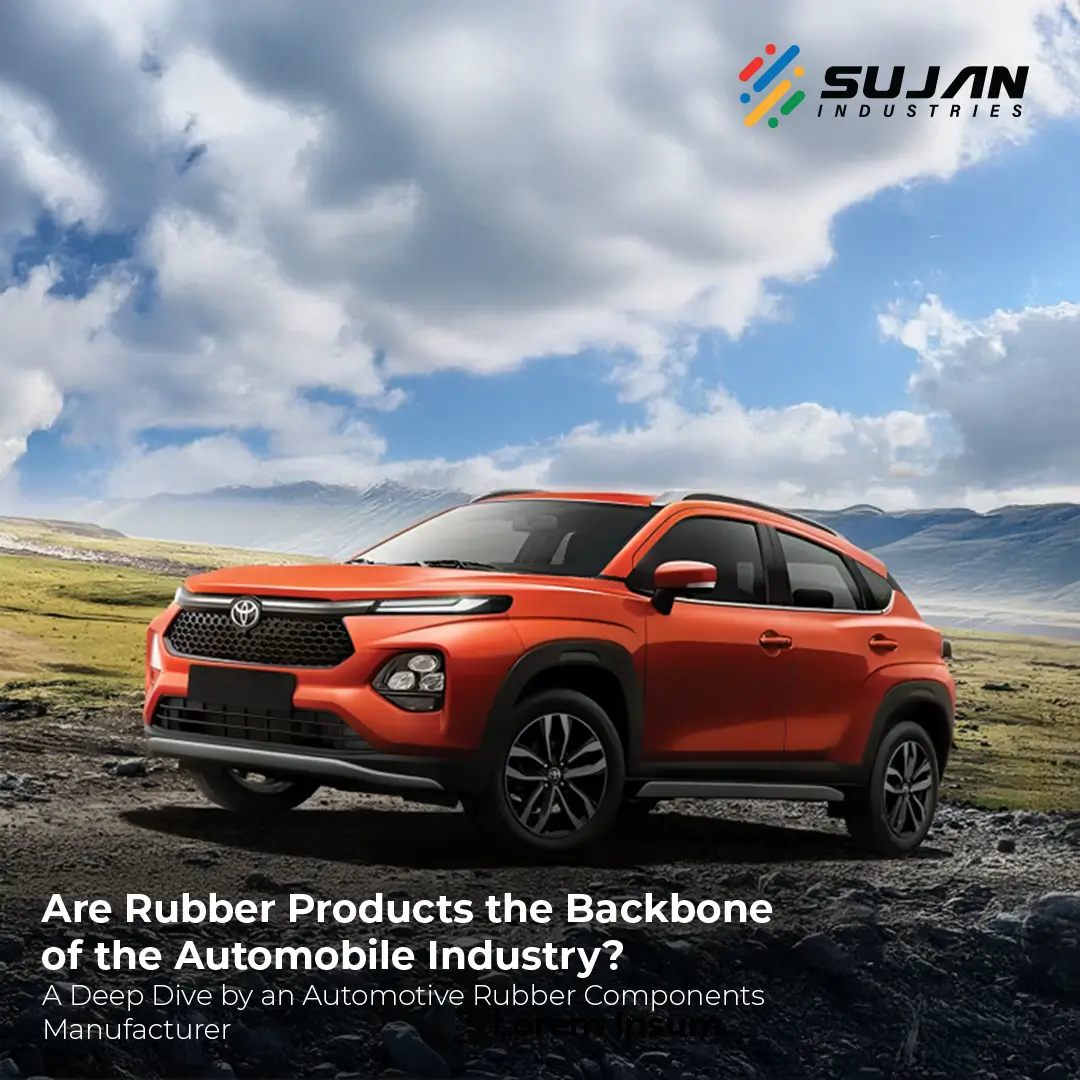
Rubber products are like the quiet backbone of the automobile industry; they help automobiles run better and last longer. Rubber components ensure safety, comfort, and efficiency, including tyres, seals, and hoses. Furthermore, automotive rubber component manufacturers ensure their adaptability and durability, allowing vehicles to run smoothly in a range of conditions.
Vehicles need rubber because it is the most flexible, resilient, and resistant to chemical substances, heat, and wear. It contributes to shock absorption, vibration reduction, and the maintenance of airtight and fluid-tight seals across numerous systems. Rubber also ensures smooth function by reducing noise and friction. Whether in tyres, gaskets, or hoses, its flexibility to a variety of situations makes it an indispensable material in automobile manufacture and safety.
Different rubber components do different jobs all over the vehicle. Indeed, without rubber, many important systems would have leakage, vibration, and durability difficulties.
Rubber seals and gaskets prevent liquids and gases from seeping between the engine, transmission, and cooling modules. It adapts to surface defects and maintains tight contact even when pressure and temperature change because of its flexibility and resilience.
Rubber is formed into hoses, belts, and tubing for carrying coolant, fuel, air, or hydraulic fluid. An automotive rubber components manufacturer uses chemically resistant and elastic rubber to tolerate pulsations and expansion without splitting or leaking.
Rubber is often used in engine mounts, bushings, and dampers to absorb shocks and dampen vibrations transmitted to the chassis. Thus, rubber contributes greatly to ride comfort and noise reduction in both high-speed and idling settings.
In some ways, the most apparent use of rubber is the tyre, which offers traction, weight support, and road irregularity damping. In the absence of high-performance rubber compounds, safety, handling, and longevity would be greatly compromised.
Automotive rubber parts manufacturers in India use a variety of rubber compounds adapted to various applications. Each type strikes a balance between characteristics like stiffness, resistance to heat and oil, and stability over time.
Natural rubber is flexible and fatigue-resistant, whereas SBR boosts abrasion strength, making its combination desirable in tire treads. They are the foundation of many tire formulations, ensuring durability and grip.
Nitrile rubber is praised for its ability to withstand oils, fuels, and chemicals. As a result, it is often found in gaskets, seals, O-rings, and hoses that interface with petroleum and hydraulic systems.
EPDM has excellent resistance to heat, ozone, water, and weathering. Because of these qualities, EPDM is often used for weatherstrips, door seals, coolant hoses, and exterior rubber profiles.
Neoprene is resistant to oil, ozone, and moderate heat, but it still stays flexible. Therefore, it shows up in belts, mounts, and moderate-duty hoses where chemical exposure might be present.
Butyl rubber effectively prevents gases from escaping from inner linings and air springs. Silicone is good for high-voltage or sensor connections and can withstand high temperatures, although specialist elastomers better suit some applications.
Sujan Industries has become a major player in the rubber-auto industry. Their focus is on quality, creativity, and user harmony from the planning stage to the delivery stage.
The company provides numerous rubber products, including gaskets, seals, hoses, and molding parts. Additionally, they change formulas and shapes to meet the specific needs of clients across all vehicle segments.
They follow strict testing protocols for factors like durability, aging, and dimensional stability. As a result, clients benefit from constant performance and low failure rates throughout a long service life.
Investing in R&D, the company investigates innovative chemicals, recycling procedures, and lightweight designs. In this way, they stay ahead of trends and support manufacturing that is both cost-effective and environmentally friendly.
Their manufacturing systems and logistics networks ensure timely order delivery and maintain sufficient stock to meet demand. Therefore, they help clients cut down on downtime and keep lean inventory practices across supply chains.
India is a major center for the manufacturing and supply of rubber components in the worldwide automobile chains. Often acts as a supplier of aftermarket parts in India, serving both domestic and international markets. India’s involvement in the manufacturing of rubber for automobiles keeps growing thanks to better facilities, easier access to raw materials, and better skill development.
Rubber products play a crucial role in the automobile industry, serving functions such as sealing, damping, transmission, and safety. According to Sujan Industries, a leading automotive rubber components manufacturer, these components ensure vehicle reliability, performance, and durability in extreme driving conditions. Moreover, to support next-generation mobility, the rubber-automotive nexus will continue to evolve as innovation and sustainability drive growth across the industry.